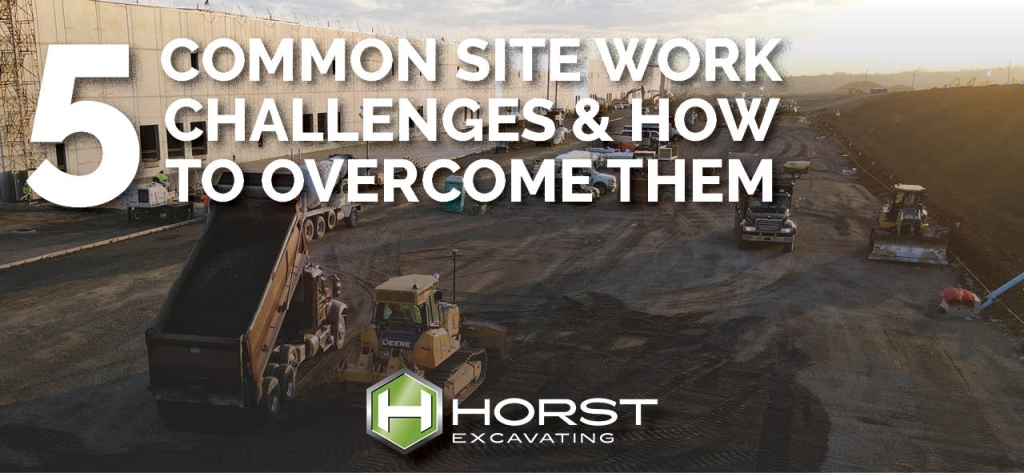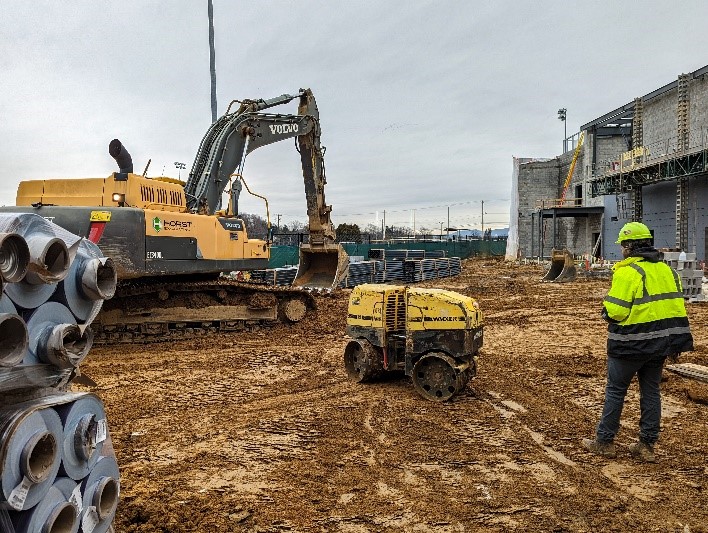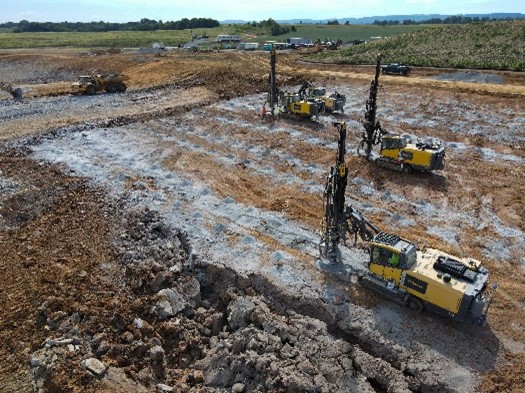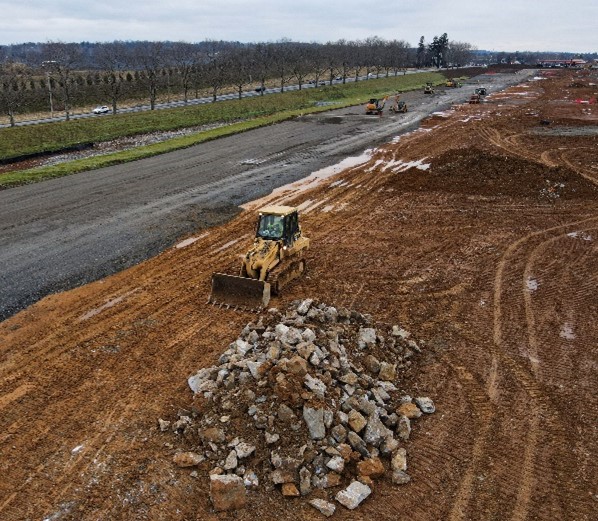5 Common Site Work Challenges & How to Overcome Them

Site work contractors and excavators play a vital role in many construction projects. Put simply, They move earth, rock, and other materials to prepare a site for a new building and all its essential systems.
However, there are various challenges that can arise during this process. In this blog, we’ll discuss the common obstacles excavators and site work contractors face, as well as how experienced teams overcome them. They include:
Site Access & Size

Projects located in heavily developed areas need to work around traffic and tight, congested roads to transport large equipment to the site. Additionally, space in heavily developed areas often comes at a premium, so sites usually have a smaller footprint. Maneuvering this machinery around a tight site can be tricky. Skilled equipment operators need to work around materials and activities from other trades onsite.
If the project takes place near existing structures, equipment operators may have to take additional precautions during certain earthwork activities to prevent damage, such as monitoring vibration levels.
While projects in more remote areas typically offer more open space to work, there can also be challenges, like a lack of developed roads leading to the site. The project team and necessary equipment may need to travel on unpaved roads, forge roads of their own, or use other means of transportation.
Whether set in a densely developed area or a very remote one, experienced excavating and site work teams work through these challenges with effective communication, planning, and teamwork.
Soil Conditions

If your site is composed of soft or sandy soil, your team may first have to stabilize it to prepare it for building. If there’s an excessive amount of rock below grade, they may have to blast and break it away to create a suitable pad for building.
The best way to avoid any unexpected soil-related challenges is to do a geotechnical report before construction begins. Engineers will come in to evaluate what’s below ground. This information is then passed on to your site work team, who can develop a suitable plan of action before tackling the project.
That said, the right excavating contractors have the experience and equipment needed to amend the soil on your site, so you’ll have a stable, long-lasting building.
Environmental Factors

Oftentimes, this looks like installing the appropriate sediment control methods to stop loose dirt, gravel, and other materials from draining into the waterways during construction. Long-term, the project should be designed to properly manage stormwater that will be displaced by the new building and pavement.
If your project requires land clearing or demolition, the team can optimize the materials that are to be removed through recycling and other ways that extend the useful life of these resources.
An experienced excavator and project team will work with you and all regulatory bodies to ensure that all regulations are met or exceeded on your project.
Unforeseen Conditions
When you were a child playing outside, do you recall digging in your yard and coming across something unexpected? Old gardening tools, glass bottles, or some other reminder of those who came before? This can happen on job sites, too.
It’ll take something much more significant than an old Coke bottle to pose a challenge to your construction project, but it does, on occasion, happen. From long-forgotten building remains to utilities to hazardous materials, it’s possible that your team unearths something unexpected.
In most cases, they’ll be able to quickly adjust and work around these issues. That said, geotechnical reports conducted before work begins can help prepare you and your team.
Weather

Most projects have time built into the schedule to accommodate common weather-related disturbances. But consistent events can make the site difficult to work with, no matter how advanced the equipment or skilled the operator is.
Excessive precipitation or repeated flooding can oversaturate the earth, making it difficult or nearly impossible to work with. Teams may need to frequently stop work to shovel out equipment tracks and clear away the mud. That said, a lack of rain or a prolonged drought may also make working with earth difficult.
High wind speeds can also halt progress, as blowing dirt, dust, and debris could be hazardous. Some equipment, like dump trucks, may not be able to operate safely. Extremely cold or warm temperatures can also impact progress. Not only will workers have to take extra precautions to ensure they’re working safely, but the soil can expand or contract.
While your project’s schedule should account for weather-related interruptions typical of your climate, severe or unexpected events can happen. The right team can work around it and mitigate disruptions.
Choosing the Right Site Work Partner
No matter the situation, most construction projects will experience challenges. The best way to combat these is to choose the right team for the job.
At Horst Excavating, we have over 60 years of site work and excavating experience. Having learned from those past challenges, Horst Excavating knows how important it is to plan for the unexpected. With these contingency plans, we can handle any curveball with flexibility, and we’ll quickly get your project back on track.
Posted June 15, 2023

